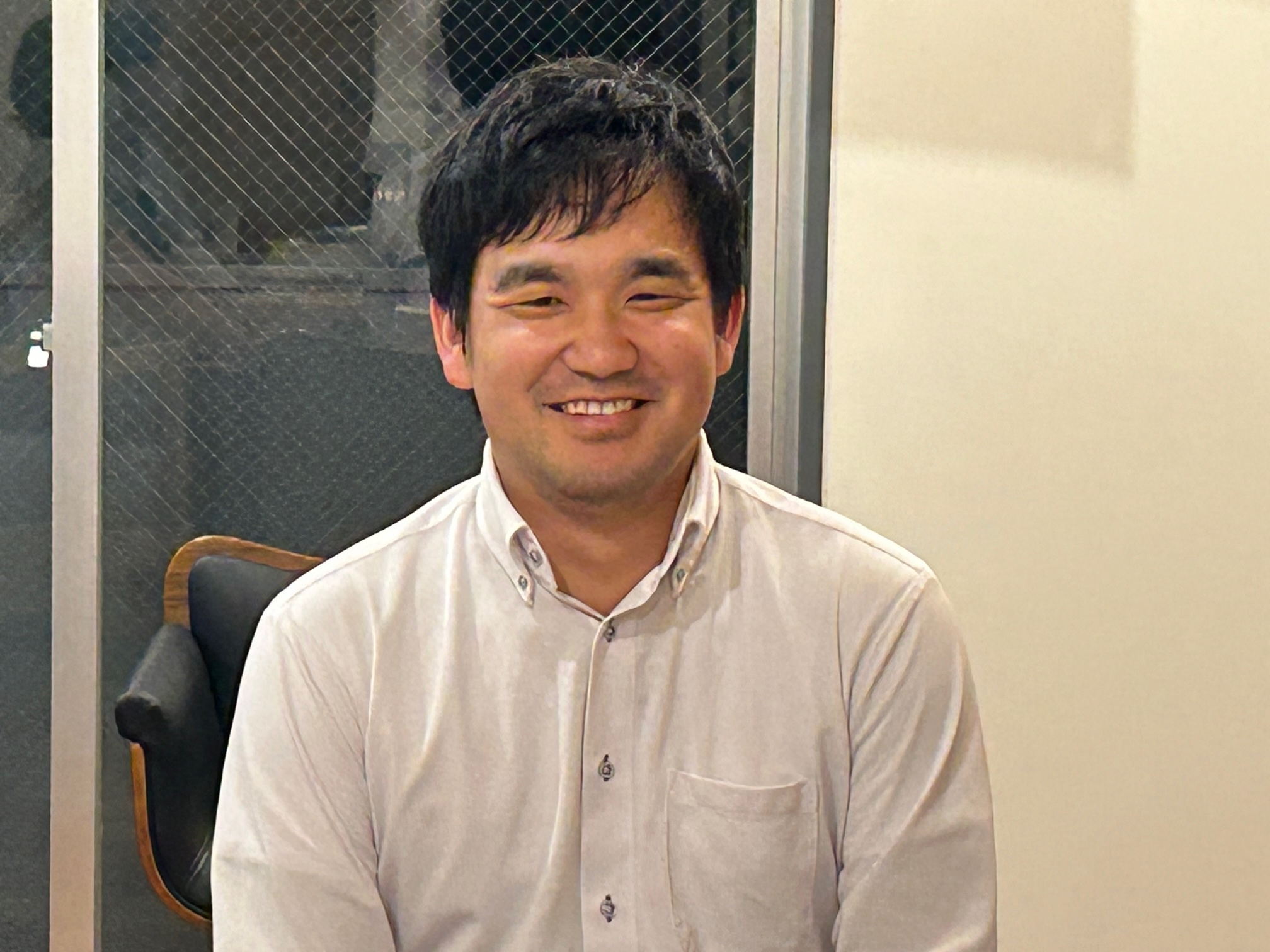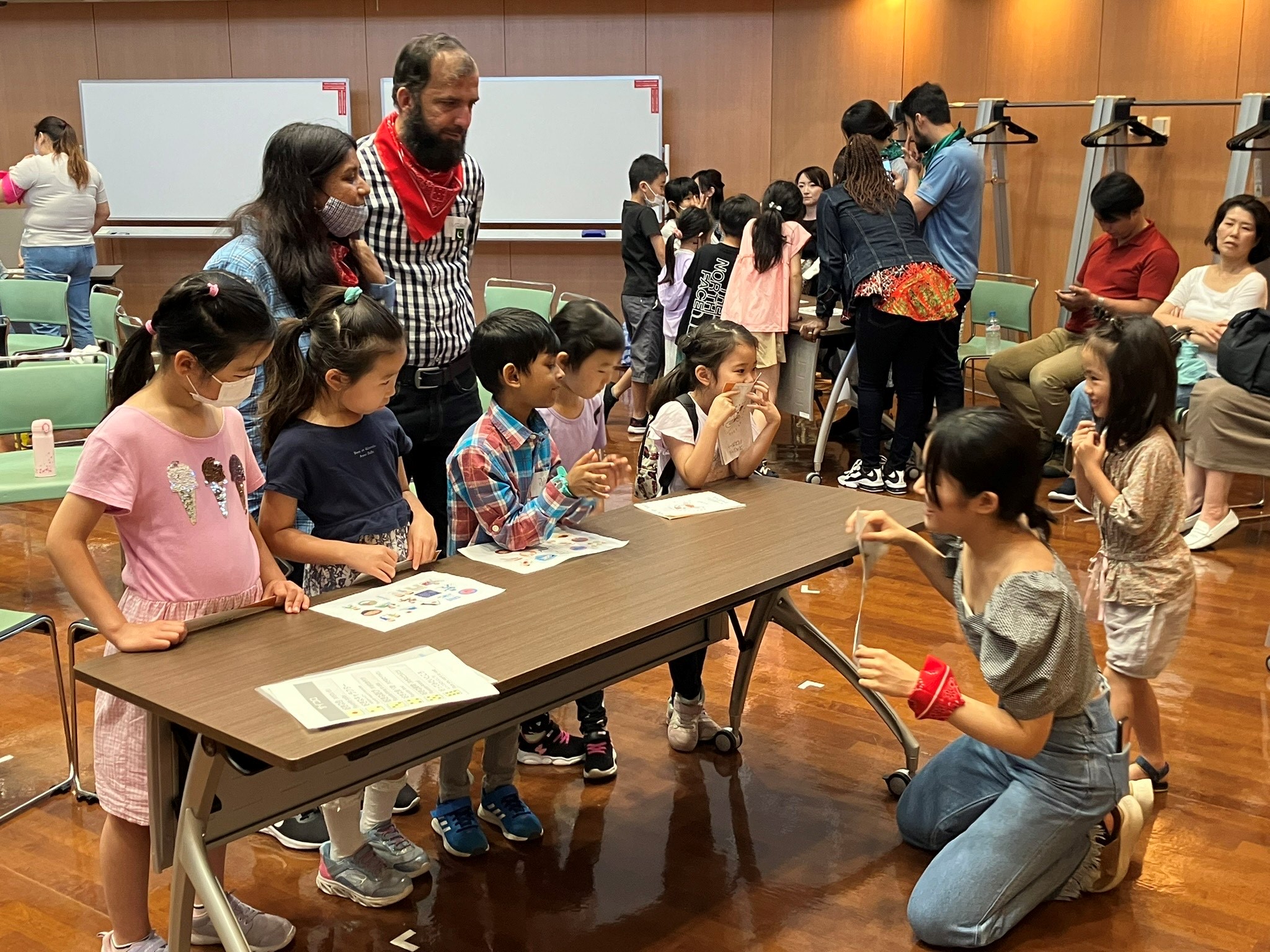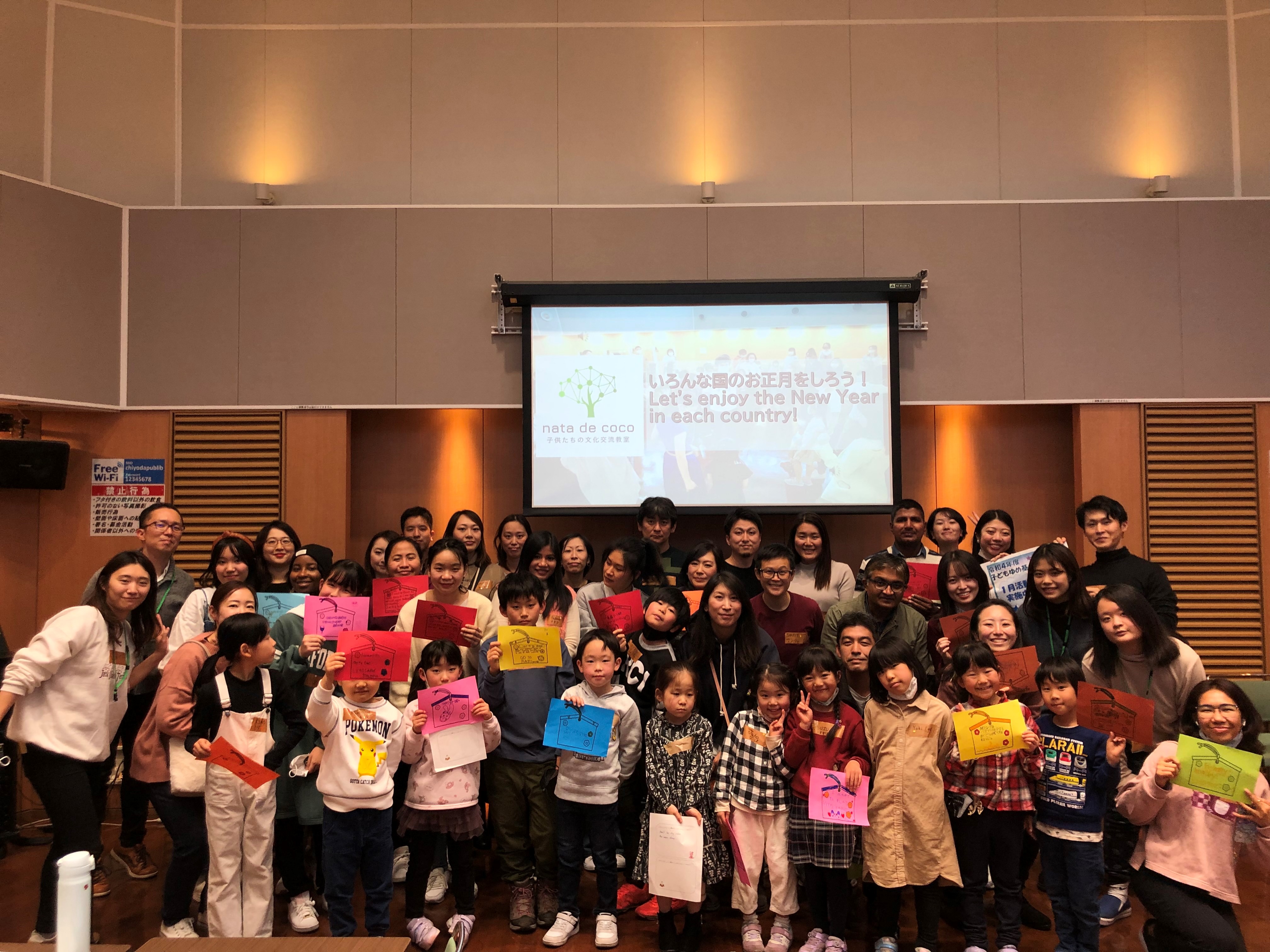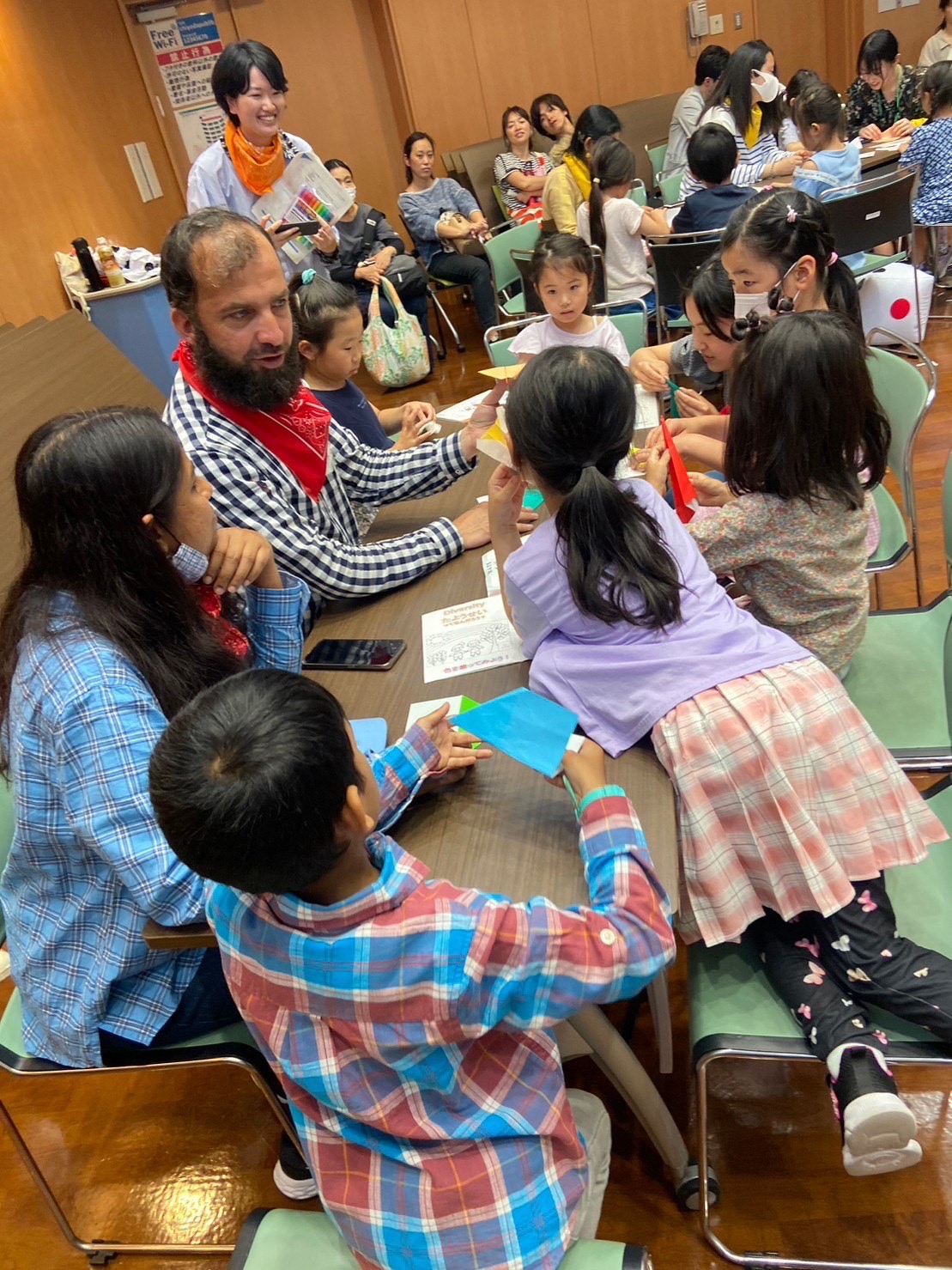Close UP
Nonprofit Organization Nata De Coco ~Drawing a world map in children's minds through enjoyable "formative experience".~

The NPO Nata De Coco plans and operates a "Cultural Exchange Class for Children" to bring cross-cultural experiences to children throughout Japan. The Cultural Exchange Class for Children offers a systematic program based on intercultural communication studies as a place for exchange between elementary school students and foreigners living in Japan. Participants do not need to have English language skills or previous overseas experience. We asked Mr. Shota Kato, a representative of Nata De Coco, about the background of its establishment and programs, which creates such a space where children can experience many countries' cultures through games, quizzes, and other activities, and foreign participants can have an opportunity to be involved in society through volunteer activities.
The "formative experience" of discovering the joy of cultural exchange is a great source of nourishment for one's life.

When you see a foreigner who is lost, some people offer him or her help, while others do not. Where does the difference between these two come from? There may be a language barrier, but there are people who can communicate with others using gestures even if they don't speak English, while there are also some people who speak English but can't open up to foreigners. Mr. Kato says that the answer to this question is whether or not one has (positive) formative experience (in this context)
"I believe that having an instinctive knowledge of the joy of experiencing different cultures in childhood will have a great impact on one's later life, including the ability to maintain an interest in different cultures even as an adult. For this reason, Nata De Coco's activities are thoroughly designed to bring "fun" home and to create formative experiences. We believe that formative experiences are not learned through minds, but are imprinted on hearts in a non-theoretical way: such as smelling a strong perfume, touching skin with a high-five, or dancing together. Our goal is to draw a map of the world in the children's hearts by letting them know that it is a big and deep place as they interact with people from different countries."
In Nata De Coco activities, the most important thing is not to develop the children's foreign language skills or the foreigners' Japanese language skills but rather to have them take home their formative experience such as: "That was fun and I want to come back again!"
"As for what kind of society we want to achieve, we think it is not one where everyone speaks English fluently, but one where people may approach those in need even if they do not speak the same language or have a different skin color. We believe that 'formative experience' is the basis (for creating such a society,) and that is why we are working on this project."
Formative experiences become triggers to expand one's world.

Those of you who are involved in work or activities related to multicultural coexistence must have had some kind of formative experience that triggered your interest in foreign countries. Mr. Kato - who is from a small town in Mie Prefecture and had hardly seen any foreigners during his elementary school years - says his formative experience began with Brazilian sweets.
"A Brazilian from the neighborhood came to my school and handed out sweets to us. Unfortunately, I don't remember what I learned at that time, but I do remember that the sweets were delicious. This was my formative experience, and I think that's how I became interested in foreign countries," says Mr. Kato.
Mr. Kato became even more interested in foreign cultures after moving to the Tokyo metropolitan area for the convenience of his family's work. While backpacking around Asia during his university days, he strongly felt the joy of being in contact with different cultures. After that, he joined the Ministry of Foreign Affairs because he wanted to work as a link between Japan and the world. And he has visited more than 70 countries so far.
"I consider myself relatively internationally experienced. When I return to my hometown in Mie Prefecture, I still meet people who say, 'I am afraid of foreign countries.' No matter how global (Japanese) society becomes, it will not change unless we create an environment where people in the community can naturally accept different cultures. I wanted to do something with my experience as a diplomat."
In August 2021, Mr. Kato launched a voluntary association, Nata De Coco, with two friends. From there, the size of the organization gradually expanded to just under 100 people, including volunteers. In June 2023, Nata De Coco was incorporated.
Participants get along much better without words.

Nata De Coco's Cultural Exchange Class for Children is held almost every two months. This class is a very popular event, and when information is posted on SNSs and the official website in the morning, the 30-person limit can fill up in a few hours. Programs are discussed and created by the members of the organization. They think of games and quizzes arranged for elementary school students, with an academic basis of intercultural communication studies. Each time a different theme is chosen, such as "Let's Travel Around the World" or "Colorful Adventure," a quiz is assembled from 50 games and 200 quiz patterns.
"I have the impression that (participants) get to know each other much faster when they don't use words; such as when they dance to express themselves with their bodies or play gesture games. We aim to create a program that is comfortable for people who speak neither Japanese nor English so that language barriers do not put a lid on the children's curiosity."
Some children get nervous in front of foreigners. Nata De Coco is consciously conducting its programs so that such children may easily participate.
"From an adult point of view, it may seem like a simple thing to do, like playing a game or a quiz. However, for children, spending time with someone from a foreign country for the first time is quite a challenge. Through this short one-hour program, we hope to plant formative experiences in a corner of (children's) hearts."
At the end of the cultural exchange class, expressions on the faces of all participants and staff change.

At the end of each Cultural Exchange Class session, participants exchange messages. Foreign participants are asked to write letters and children draw pictures. Then they exchange them. Toward the end of the event session, the faces of participants and staff are said to change.
"The faces of not only children but also of foreign participants and the Japanese staff change. Seeing the faces of these people makes me glad we do (these events)."
Nata De Coco has received comments from participating children and their parents, such as – "I tried to speak to a foreigner I saw on the way to school, in broken English," "My child is passionate about the secrets hidden in the national flags and looks at the flags of the world every day," "My child started asking me in restaurants which country's cuisine it was from," "My child is eager to learn English, and the next time they meet foreigners, they want to ask foreigners what their favorite color is". The sprout of the children's formative experience is growing happily.
Mr. Kato says, "One of our ideals is that children will be able to act on their interest in different cultures as a result of formative experiences they gained in our Cultural Exchange Class. So we are happy to hear this kind of feedback."
Foreign participants also expressed their happiness, saying, "I had a good experience sharing my culture with children," "I am glad to have made Japanese friends," and "I am happy to have come to Japan". Some of the foreign participants are usually shuttling back and forth between work, school, and home, which limits their opportunities to interact with Japanese people. For these people, this Cultural Exchange Class is a chance to connect with Japanese society.
Expanding occasions for international cultural exchange throughout Japan.

Nata De Coco says they would like to bring their programs to children not only in Tokyo but also throughout Japan. Recently, they have been increasingly requested to go out to elementary schools and local municipalities outside of Tokyo.
"There is a term called experience gap. Geographical and other kinds of factors have resulted in a gap in overseas experience (among children). We would like to fill this gap as much as possible."
To bridge this gap, Mr. Kato says that Nata De Coco's current goals are to increase the number of Cultural Exchange Class sessions they hold and to further expand their scale. In addition, Nata De Coco's goal for the future is to create a community in the neighborhood.
"I believe that if a community - where many people of all ages, genders, and nationalities gather around our Cultural Exchange Class - is established in the neighborhood, it would become a model for multicultural coexistence (in Japan). I would like to make it commonplace that our Cultural Exchange Class be held at elementary schools and children's centers throughout Japan, where people may meet one another, and foreigners may go to local gatherings and participate in society. I would like to make such a society through our activities."
Most of Nata De Coco's staff members have jobs while working for the organization. So balancing work and activities is a major challenge for them. However, Mr. Kato's favorite phrase is, "Only those who chase two hares will catch two hares". We look forward to further development from Nata De Coco in the future.
*This article is based on information available at the time of the interview. For the latest information, please contact the organization directly.
